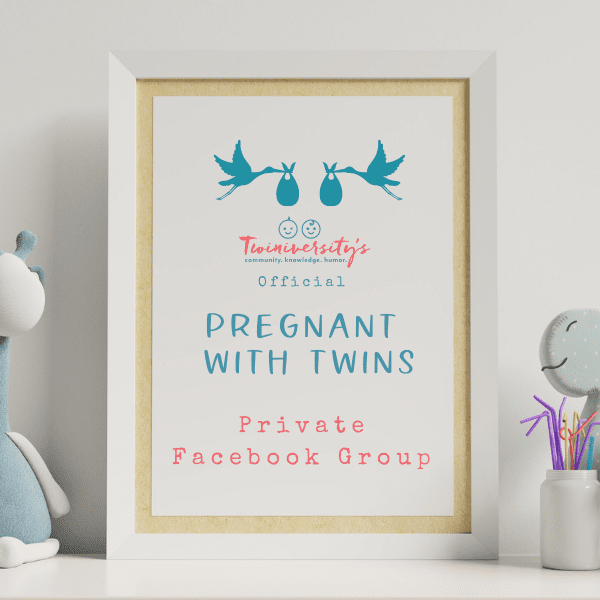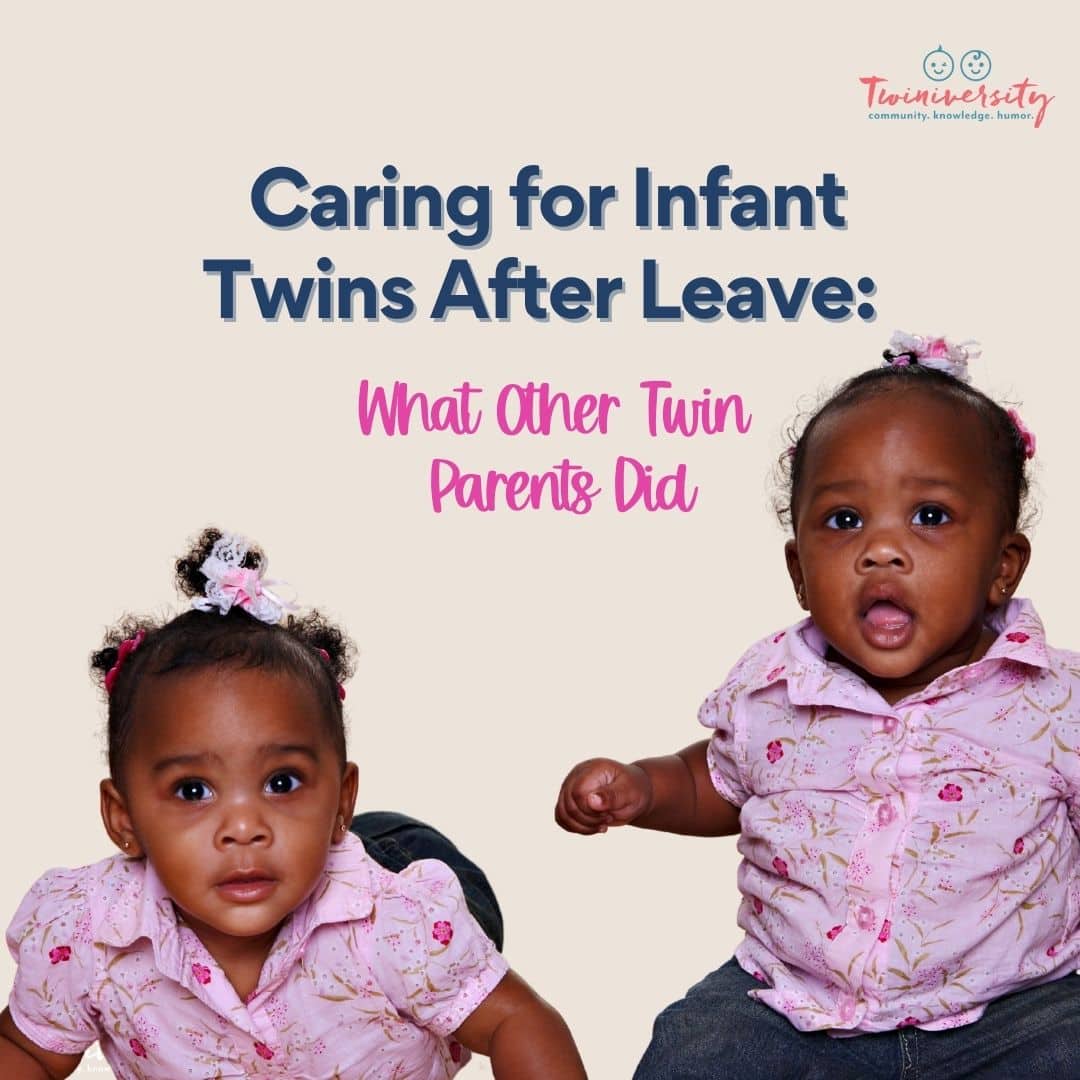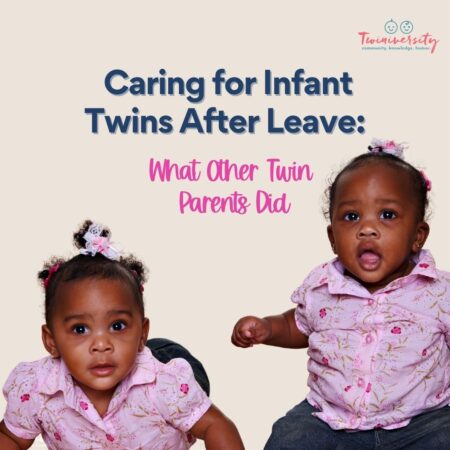Last updated on November 5th, 2023 at 09:47 am
Choosing your medical team for a twin pregnancy is one of the first things you should do once you see those two little dots on your first ultrasound. Even if you’ve been pregnant before, you probably know that twin pregnancies sometimes needs extra care and consideration. As such, choosing the best medical team for you and your twins should be one of your top priorities in the coming weeks. If you’re unsure about how to choose or need to know more, we’ve got you covered. Here’s everything you need to know about choosing the best medical team for your twin pregnancy.
Why Do I Need a Medical Team for My Twin Pregnancy?
Aside from the bigger bump and a few extra doctor’s appointments, the biggest difference in twin pregnancy is the increased risks of complications for babies and Mom. Prevention, monitoring, and treatment of these complications is the most important part of a healthy twin pregnancy. While many twin pregnancies go great with one care provider, a diverse medical team can help ensure the safest and healthiest outcome for all.
Your medical history, previous pregnancy experience, and results of prenatal screening/testing all factor into your risk of complications. Some complications include:
- Preeclampsia
- Gestational hypertension (high blood pressure)
- Gestational diabetes
- Anemia
- Fetal growth issues
- Placenta previa
- Preterm labor
- Premature birth
- Cesarean section
- Postpartum hemorrhage
The type of twins you’re having will also influence your risk factors and can dictate the care you receive. Dichorionic-Diamniotic (Di-Di) twin pregnancies, which are most commonly fraternal twins, are usually at lower risk and allow more options for prenatal care.
Identical twins are a bit more complicated from the start. Monochorionic-Diamniotic (Mono-Di or Mo-Di) share a placenta and have a thin membrane separating the babies. Monochorionic-Monoamniotic (Mono-Mono or Mo-Mo) share both the placenta and the amniotic sac. Sharing is great, but a single placenta puts them at risk for all that plus identical twin-specific complications such as:
- Twin-to-Twin Transfusion Syndrome (TTTS)
- Twin Anemia Polycythemia Sequence (TAPS)
- Selective Intrauterine Growth Restriction (sIUGR)
While many twin pregnancies are completely fine, complications can occur at any time and twin pregnancies often require a larger medical team for intervention and support.

How Do I Choose My Medical Team for a Twin Pregnancy?
When choosing your medical team, the top considerations are their experience and your level of comfort. Ideally, you want a medical team that is skilled at multiples care and delivery and makes you feel cared for and confident in their ability. Avoid any provider who attempts to diminish your concerns or who believes that a twin pregnancy is no different from a singleton pregnancy.
You may have prior experience with an obstetrician or midwife and wish to continue seeing them for your twin pregnancy. This is fine, but be sure to discuss their experience with twins, including prenatal care, labor, and delivery. Ask about their experiences with delivering twins including how they have handled complications. Do they have experience with double-whammy delivery? What happens if an issue comes up that they are not equipped to handle? If your current healthcare provider can’t care for your twin pregnancy, take the time to interview for a new provider.
Another important consideration is your provider’s hospital privileges. Even if your provider offers the best prenatal care, twins sometimes require special care during and after labor. This can often include time in the Neonatal Intensive Care Unit (NICU). As such, your medical team should always include a provider with privileges in a hospital that has at least a Level II NICU.
In many cases, you might be limited to what’s available locally, especially in rural areas. Be sure to find a provider who can handle twins or be prepared to travel for prenatal care and your delivery. If this is the case, look into social programs that support prenatal care access for high-risk pregnancies.
RELATED: Where Should I Give Birth to Twins?

Who Should Be On My Medical Team in Twin Pregnancy?
In the first weeks of pregnancy, interview all healthcare providers available to find the best fit for your pregnancy needs. The most important person on your team will provide prenatal care and deliver your twins. You have a few options, depending on the needs of your pregnancy.
Obstetrician (OB)
An Obstetrician (OB) is a medical doctor that provides care for people during pregnancy, labor, and delivery. Often combined with gynecological care, they also provide healthcare for women before and after childbirth. OBs receive extensive education, including a Bachelor’s degree and four years of medical school. This is followed by four years of residency where they gain hands-on experience diagnosing and treating pregnancy and participating in births.
OBs use various tools such as ultrasounds, prenatal screenings and tests, and blood and urine tests to monitor both your health and that of your twins. They are skilled at many types of birthing experiences and also typically have privileges at hospitals that provide neonatal intensive care. OBs are highly qualified and are one of the best choices for a safe and healthy twin pregnancy.

Did you know we have a FREE Facebook group just for expecting twin parents? Hurry and join today to find support from expecting twin mamas who get it!
Midwife
A midwife is a trained healthcare professional who provides a range of women’s health care and support before, during, and after pregnancy. Midwifery credentials and experience vary, but most focus on more natural pregnancy and birthing experiences. A certified nurse midwife can provide prenatal and delivery care for a healthy and uncomplicated twin pregnancy, ideally in a hospital or birth center.
However, due to the increased risk of complications requiring medical intervention, many midwives can’t or won’t deliver twins alone. Some states even have legal restrictions on midwives attending twin births without a physician. That said, a midwife can still be an excellent addition to your medical team. Offering prenatal care and labor support, they often work in conjunction with an OB or MFM. Midwives also provide education and support to expectant parents and advocate for moms and babies when needed.
Maternal Fetal Monitoring Specialist
A Maternal Fetal Monitoring specialist (MFM) is a special type of obstetric doctor trained to provide care for high-risk pregnancies, including twins and higher order multiples. They receive additional education and are able to handle a multitude of complications.
Contrary to popular belief, a twin pregnancy does not necessarily mean you will have to see an MFM. Rather, they are an option in the event that your pregnancy requires more support due to complications or higher risk factors.
An MFM provides in-depth monitoring, including ultrasounds to measure growth and fluids, and diagnostic testing including amniocentesis and chorionic villus testing. While they are often brought in to address complications and coordinate care with your prenatal care provider, an MFM can also handle all of your pregnancy and delivery care themselves.
Additions to Your Medical Team for Twin Pregnancy
Once you choose your prenatal care providers, you can fill out your medical team with other supports to help achieve the healthiest pregnancy.
Doula
Rather than providing medical care, a doula supports the birthing person by meeting their physical and emotional needs during labor and delivery. Doulas provide a wide array of support, including encouraging them to advocate for themselves and their birthing preferences. A doula also offers knowledge of labor and delivery procedures and can offer therapeutic interventions such as acupressure, aromatherapy, and massage.
If you choose to add a doula to your team, try to begin the process early on. Plan to meet with them a few times to build your relationship and develop your birthing plan, including their role on delivery day.
Keep in mind that even if you’ve had a perfect pregnancy, twin labor is unpredictable and may require surgical intervention. If you need an emergency C-section, your doula may not be able to attend. This is often due to hospital capacity restrictions in the operating room. Be sure to clarify with your hospital whether your doula can be in the OR before committing. Check out DONA.org to find a doula near you.
RELATED: How a Doula Helped Me and My Twins

Genetic Counselor
Prenatal genetic screening and testing are important parts of a healthy pregnancy. Handling all aspects of risk assessment, testing, and diagnoses, a genetic counselor supports families at all stages of fertility and natal care. If your babies are at risk for or diagnosed with a chromosomal abnormality or defect, a genetic counselor can help you understand and prepare for their birth. They can also guide you through treatment options and care plans.
Nutritionist
While eating for three sounds great (at least no one can judge you!), it’s not always easy to meet the nutritional needs of your body plus two babies. A nutritionist can help you make the best dietary choices to meet your daily nutritional needs. They can provide meal plans and suggest supplements to optimize your intake. A nutritionist can also address specific complications like gestational diabetes and high blood pressure. If you’re having a hard time managing your diet, be sure to seek the advice of a nutritionist.
Lacatation Consultant
If you decide to breastfeed your twins you will likely benefit from the support of a Lactation Consultant (LC). LCs provide valuable support and information about how to breastfeed twins and can offer solutions when troubles arise. Most hospitals and NICUs have LCs on staff, or you can hire your own, such as Twiniversity’s own Natalie Diaz.
Postpartum Doula
As if twin pregnancy and delivery isn’t hard enough, the real work has only just begun. A postpartum doula can provide support for parents during post-delivery in many ways. This includes breastfeeding support, physical and emotional recovery, baby care techniques, and increased access to community resources. Some even provide more hands-on care, such as light housekeeping, errands, meal prep, and sibling care (and what mama wouldn’t love that kind of help?). Employing a postpartum doula can help you and your partner focus on meeting the needs of your new babies.

Take Time in Choosing Your Medical Team in Twin Pregnancy
Finding out you’re having twins can turn your world upside down, even if you find out during a later ultrasound. But access to support, knowledge, testing, and medical intervention can make all the difference in your experience. With so many decisions to make in the coming months, one of the most important will be choosing your medical team. Take your time, research your options and choose providers with twin experience who also help you feel supported in your twin pregnancy.










